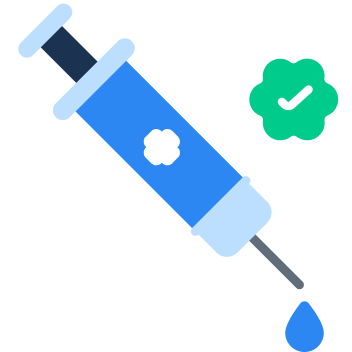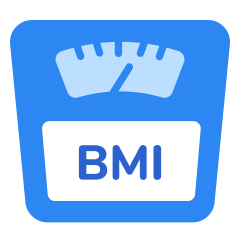Alasmari, F. (2020). Caffeine induces neurobehavioral effects through modulating neurotransmitters. Saudi Pharmaceutical Journal : SPJ, 28(4), 445-451. https://doi.org/10.1016/j.jsps.2020.02.005
Wierzejska, R. (2017). Can coffee consumption lower the risk of Alzheimer’s disease and Parkinson’s disease? A literature review. Archives of Medical Science : AMS, 13(3), 507-514. https://doi.org/10.5114/aoms.2016.63599
Zhang, B., Liu, Y., Wang, X., Deng, Y., & Zheng, X. (2020). Cognition and Brain Activation in Response to Various Doses of Caffeine: A Near-Infrared Spectroscopy Study. Frontiers in Psychology, 11. https://doi.org/10.3389/fpsyg.2020.01393
R. Chaisricharoen, W. Srimaharaj and S. Manurkar, “Consideration of Oolong Tea Effect on Senior’s Cognitive Performance,” 2020 Joint International Conference on Digital Arts, Media and Technology with ECTI Northern Section Conference on Electrical, Electronics, Computer and Telecommunications Engineering (ECTI DAMT & NCON), Pattaya, Thailand, 2020, pp. 91-94, https://doi.org/10.1109/ECTIDAMTNCON48261.2020.9090704.
Mineharu, Y., Koizumi, A., Wada, Y., Iso, H., Watanabe, Y., & Date, C. et al. (2009). Coffee, green tea, black tea and oolong tea consumption and risk of mortality from cardiovascular disease in Japanese men and women. Journal of Epidemiology & Community Health, 65(3), 230-240. https://doi.org/10.1136/jech.2009.097311
Mangels, D. R., & Mohler III, E. R. (2017). Catechins as potential mediators of cardiovascular health. Arteriosclerosis, thrombosis, and vascular biology, 37(5), 757-763. https://doi.org/10.1161/ATVBAHA.117.309048
Sun, K., Wang, L., Ma, Q., Cui, Q., Lv, Q., Zhang, W., & Li, X. (2017). Association between tea consumption and osteoporosis: A meta-analysis. Medicine, 96(49). https://doi.org/10.1097/MD.0000000000009034
Balappanavar, A. (2020). Tea and Oral Health. Tea – Chemistry And Pharmacology. https://doi.org/10.5772/intechopen.80998
Prasanth, M. I., Sivamaruthi, B. S., Chaiyasut, C., & Tencomnao, T. (2019). A Review of the Role of Green Tea (Camellia sinensis) in Antiphotoaging, Stress Resistance, Neuroprotection, and Autophagy. Nutrients, 11(2). https://doi.org/10.3390/nu11020474
Uehara M, Sugiura H, Sakurai K. A trial of oolong tea in the management of recalcitrant atopic dermatitis. Arch Dermatol. 2001 Jan;137(1):42-3. https://doi.org/10.1001/archderm.137.1.42. PMID: 11176659.
Lee AH, Su D, Pasalich M, Binns CW. Tea consumption reduces ovarian cancer risk. Cancer Epidemiol. 2013 Feb;37(1):54-9. https://doi.org/10.1016/j.canep.2012.10.003. Epub 2012 Oct 26. PMID: 23107758.
SHI, H., LIU, J., TU, Y., FRETER, C., & HUANG, C. (2018). Oolong Tea Extract Induces DNA Damage and Cleavage and Inhibits Breast Cancer Cell Growth and Tumorigenesis. Anticancer Research, 38(11), 6217-6223. https://doi.org/10.21873/anticanres.12976
Hodgson, A. B., Randell, R. K., & Jeukendrup, A. E. (2013). The Effect of Green Tea Extract on Fat Oxidation at Rest and during Exercise: Evidence of Efficacy and Proposed Mechanisms. Advances in Nutrition, 4(2), 129-140. https://doi.org/10.3945/an.112.003269
Clark, K. S., Coleman, C., Shelton, R., Heemstra, L. A., & Novak, C. M. (2019). Caffeine enhances activity thermogenesis and energy expenditure in rats. Clinical and experimental pharmacology & physiology, 46(5), 475. https://doi.org/10.1111/1440-1681.13065
Fight Inflammation With a Cup of Tea – Living With Arthritis. (2016). Retrieved 2 February 2023, from http://blog.arthritis.org/living-with-arthritis/health-benefits-of-tea/
Nie, J., Yu, C., Guo, Y., Pei, P., Chen, L., Pang, Y., Du, H., Yang, L., Chen, Y., Yan, S., Chen, J., Chen, Z., Lv, J., & Li, L. (2021). Tea consumption and long-term risk of type 2 diabetes and diabetic complications: A cohort study of 0.5 million Chinese adults. The American Journal of Clinical Nutrition, 114(1), 194-202. https://doi.org/10.1093/ajcn/nqab006
Gopal, J., Muthu, M., Paul, D. et al. Bactericidal activity of green tea extracts: the importance of catechin containing nano particles. Sci Rep 6, 19710 (2016). https://doi.org/10.1038/srep19710
Sakil Munna, M. (2018). Demonstration of Antimicrobial Activity of Commercial Oolong Tea and Green Tea Against Pathogenic Bacteria. American Journal Of Plant Biology, 3(1), 8. https://doi.org/10.11648/j.ajpb.20180301.12
Caffeine: How much is too much?. (2023). Retrieved 2 February 2023, from https://www.mayoclinic.org/healthy-lifestyle/nutrition-and-healthy-eating/in-depth/caffeine/art-20045678
P camellia sinensis (Theaceae) pdf. Dr. Duke’s Phytochemical and Ethnobotanical Databases at NAL. (n.d.). Retrieved February 2, 2023, from https://phytochem.nal.usda.gov/phytochem/plants/show/322?qlookup=camelia%2Bsinensis&offset=0&max=20&et=



























